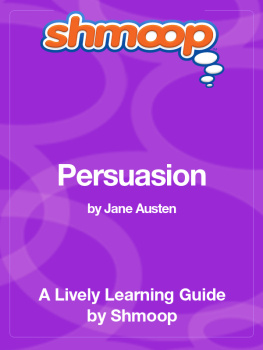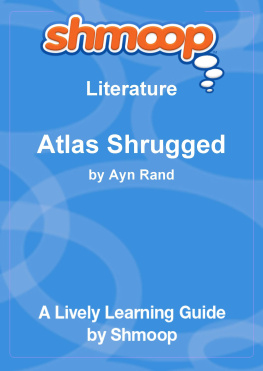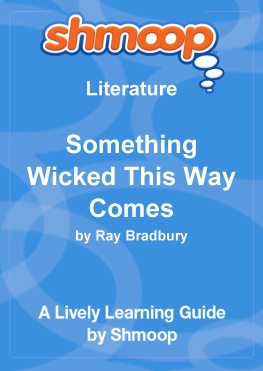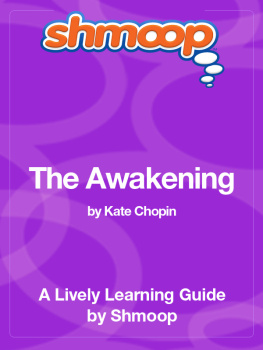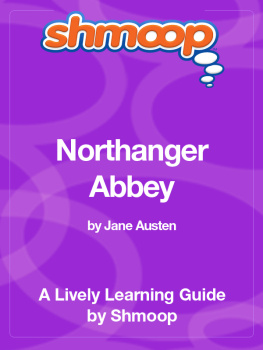
Table of Contents
In a Nutshell/Overview
Persuasion was the last novel Jane Austen completed, and it didn't appear in print until 1818, after she had passed away. It's also shorter than most of her other novels, and some critics think that, because she wrote the novel while she was sick with the disease that would eventually kill her, she didn't expand and polish Persuasion as much as she would have if she had been in good health.
Because of Persuasion's shorter length, it was published as a package with another novel that Austen hadn't published during her lifetime - her first completed novel, Northanger Abbey. Publishing the two novels together does make sense as more than a marketing gimmick (two Austen novels for the price of one!) - both are set partly in Bath, both feature bookish heroines, and both have troublesome father figures.
But there are also major differences between the two books. While Northanger Abbey is a lighthearted send-up of Gothic novel cliches, the term scholars most often use to describe Persuasion is "autumnal" - the kind of feeling you get when there's a chill in the air and dead leaves falling from the trees. Persuasion's protagonist is an aristocratic woman named Anne Eliot. Anne is unmarried, having rejected her lover, a naval officer, after being persuaded by her friends and family that he was unsuitable. At 27 she's the oldest of Austen's heroines and, unlike the others, she's already had, and lost, her chance at love. Anne lives on her memories of summer, but feels that only winter lies ahead.
Persuasion asks: are endings ever really endings? When is it worthwhile holding on to the past, and when should you let it go and move on to the next thing? And the novel asks that question on a much larger scale than just Anne's romantic prospects. In setting up a face off between those who inherited their social status (the aristocracy) and those who worked for it (naval officers), Persuasion examines the pros and cons of the way power is distributed in society - and how that distribution is changing. The novel is set at a historical moment when society is in major flux: the Napoleonic Wars, which had been raging for over a decade, finally seem over, and the troops are at long last coming home to make new lives for themselves as civilians. They return to a nation that glorifies their military service but is ruled by an aristocracy that doesn't always want to accept them as equals. Can the to-the-manor-born aristocrat and the self-made individual figure out how to get along? Should they even try? Is it time to turn off the life support on the old ways of living, or are there parts worth saving? Not only Anne but her whole society (and Austen's too) have to figure out answers to these questions, or at least think through them well enough to find their way through winter into spring.
Why Should I Care?
While a major theme in Persuasion is, not surprisingly, persuasion, the examples of persuading that the novel provides are very small-scale. Individuals persuade other individuals to do or not to do things that affect a dozen people at most.
Today, persuasion is big business. Between advertising and news media, it's virtually impossible to get through the day without someone trying to persuade us to buy something or believe something. Persuasive voices speak out from every TV and computer screen, billboard, and bus, telling us that to be sexy, we need to buy this product, or that Candidate X said that the sky is not always blue and don't you think that's outrageous? Persuasion is no longer limited to our friends and relations - it's everywhere we look.
So what can Persuasion tell us about dealing with persuasion today? Does the novel suggest it's something we should listen to, or try to ignore?
Austen's novel portrays persuasion as a powerful tool, but doesn't declare it to be either right or wrong - it depends on who uses it, and for what ends. Sometimes persuasion can act as helpful advice, but sometimes it can push a person towards a bad decision or a false belief. The question is, how can we tell the difference? What can we use to find a middle ground between the extremes of believing everything we hear or just tuning it all out? And how do we make up our minds when different sources are trying to persuade us to do or think different things? Persuasion doesn't necessarily give us answers to these questions, but it does remind us that we need to keep asking them.
Whats Up With the Title?
Before we get into the deep meaning of the title
Persuasion, a useful fact: Austen didn't actually call the book that. As far as we know, she meant to use the title
The Elliots, but she died before the book was published, and her family decided to go with the catchier
Persuasion. That bit of historical trivia doesn't mean the title is completely meaningless, however: after, all, Austen's heirs didn't just pick the title out of thin air. Forms of the word "persuade" pop up all over the text, and forms of persuasion - which can mean both "to convince someone of something" and "to believe something to be true" - again and again shape the development of the story.
From the beginning, the novel is founded on the fallout from a major act of persuasion. When Lady Russell persuades Anne not to marry Captain Wentworth eight years before the novel begins, she thinks she is doing the right thing by convincing Anne that it's her moral duty not to make herself dependent on a man who can't support her. When a sadder, wiser Anne looks back on the moment which has haunted her ever since, she doesn't blame Lady Russell for being persuasive, nor herself for giving into persuasion, but still thinks that if the power of persuading had been in her hands at that moment, she and Wentworth would already have several fat babies to their credit.
Reading that might make you think that the lesson from Anne's experience is obvious: when other people try to persuade you, it's time to put your fingers in your ears and sing "la la la, I can't hear you" until they go away. But
Persuasion's stance on persuasion isn't that simple. Louisa's refusal to listen to others lands her with a head injury and a personality transplant, causing Anne to hope that Wentworth learns that "a persuadable temper might sometimes be as much as favor of happiness, as a very resolute character" (12.71). In
Persuasion, persuasion in itself is neither always good nor always bad: it depends on how you use it.
Whats Up With the Ending?
At first glance, the end of
Persuasion might seem all puppies and sunshine. Anne and Captain Wentworth get together at last! Mr. Elliot gets the boot! Even Mrs. Smith gets rich! Sounds like a classic happily-ever-after, riding-unicorns-into-the-rainbow-sunset ending, right?
Well...almost. While the ending does suggest that having eight years to grow up and figure themselves out has made our happy couple even more likely to stay that way, and with the added bonus that Anne's snobby family is finally OK with Wentworth's naval profession, the last sentence of the novel is oddly ambivalent. In fact, it sounds almost like a warning: "[Anne] gloried in being a sailor's wife, but she must pay the tax of quick alarm for belonging to that profession which is, if possible, more distinguished in its domestic virtues than in its national importance" (24.12). While the novel has been boosting sailors from the get-go, it ends with a sobering reminder: the navy is, after all, part of the military, which means that if war should come they're among the first to be affected.

